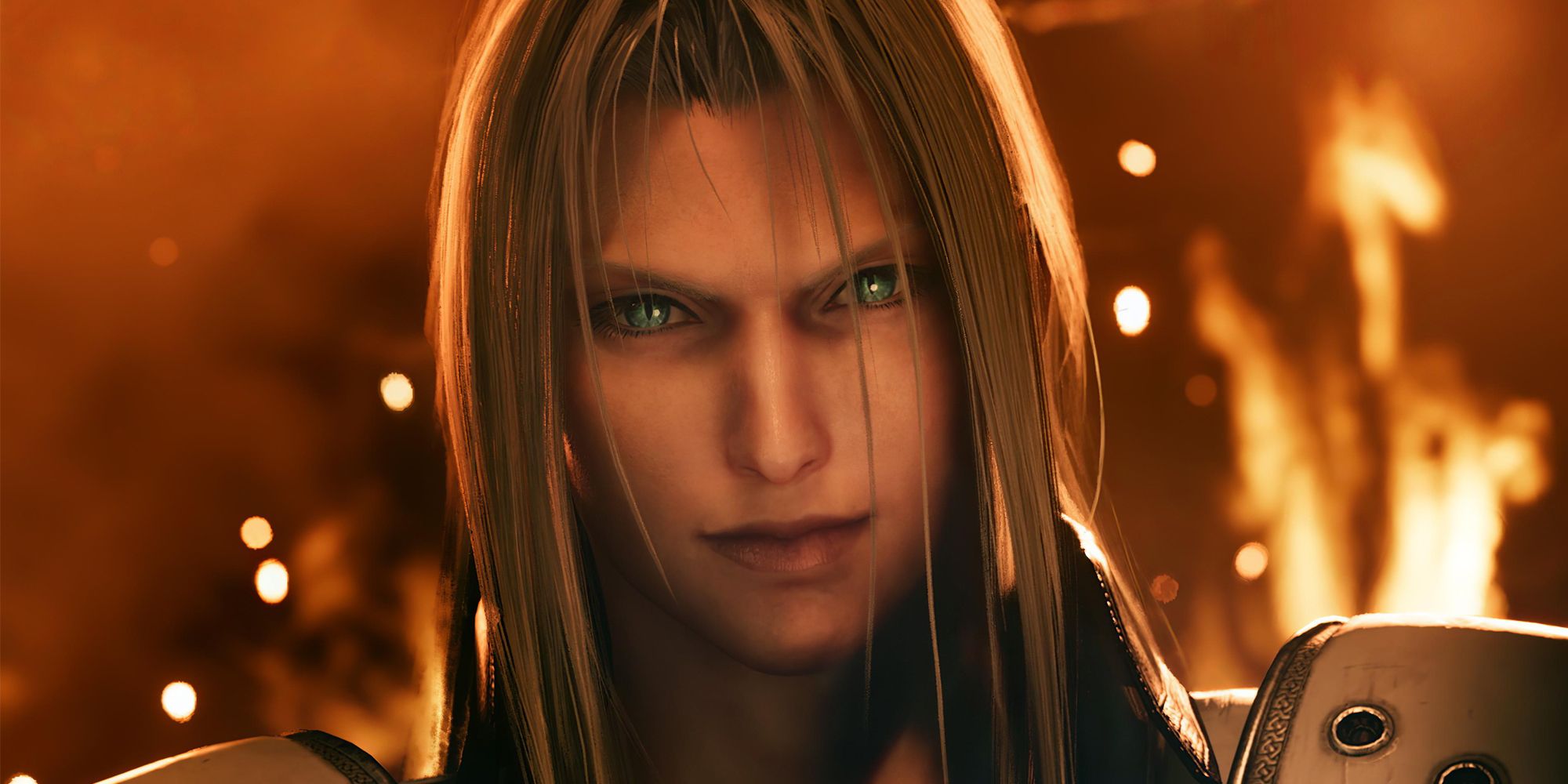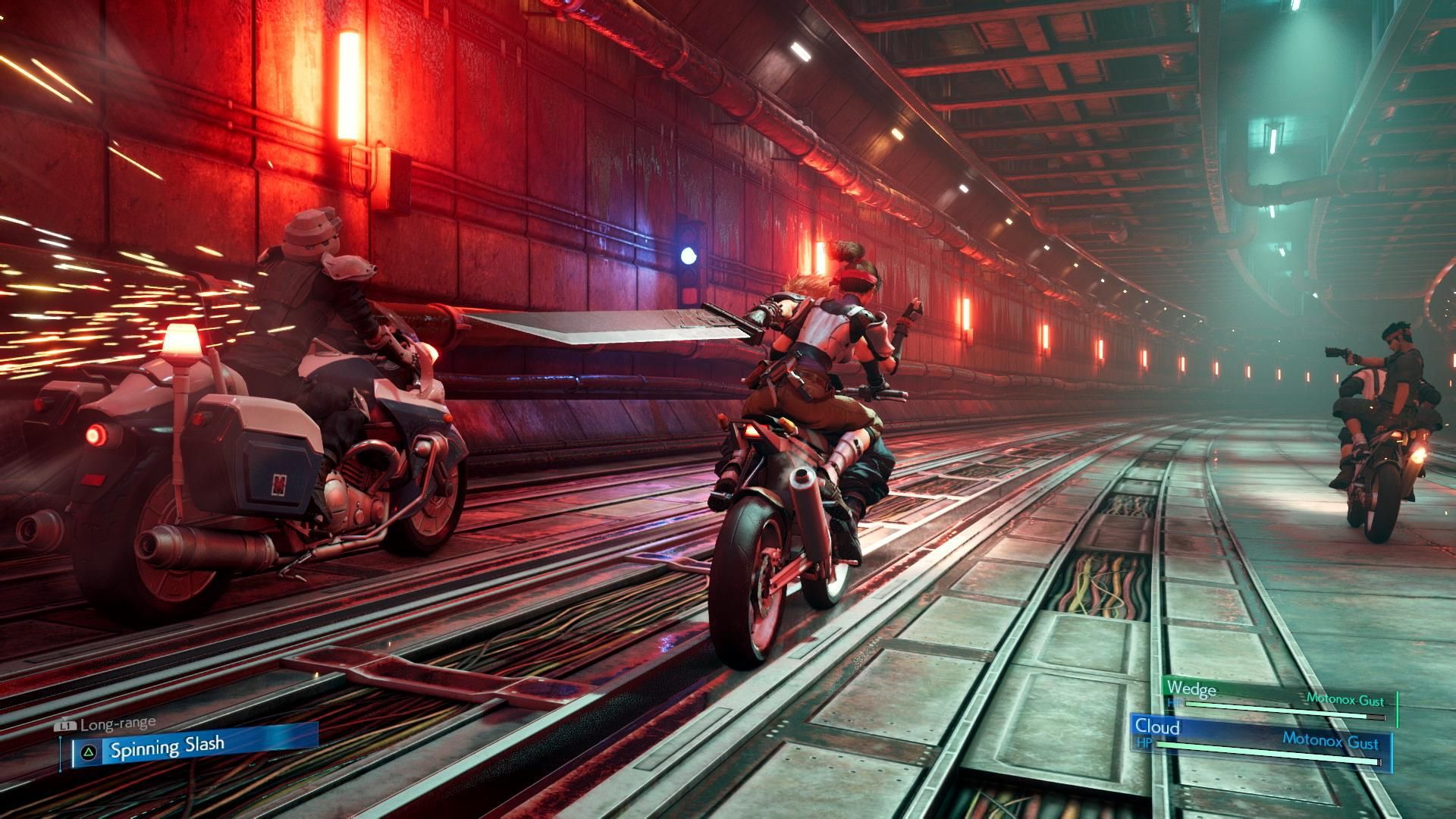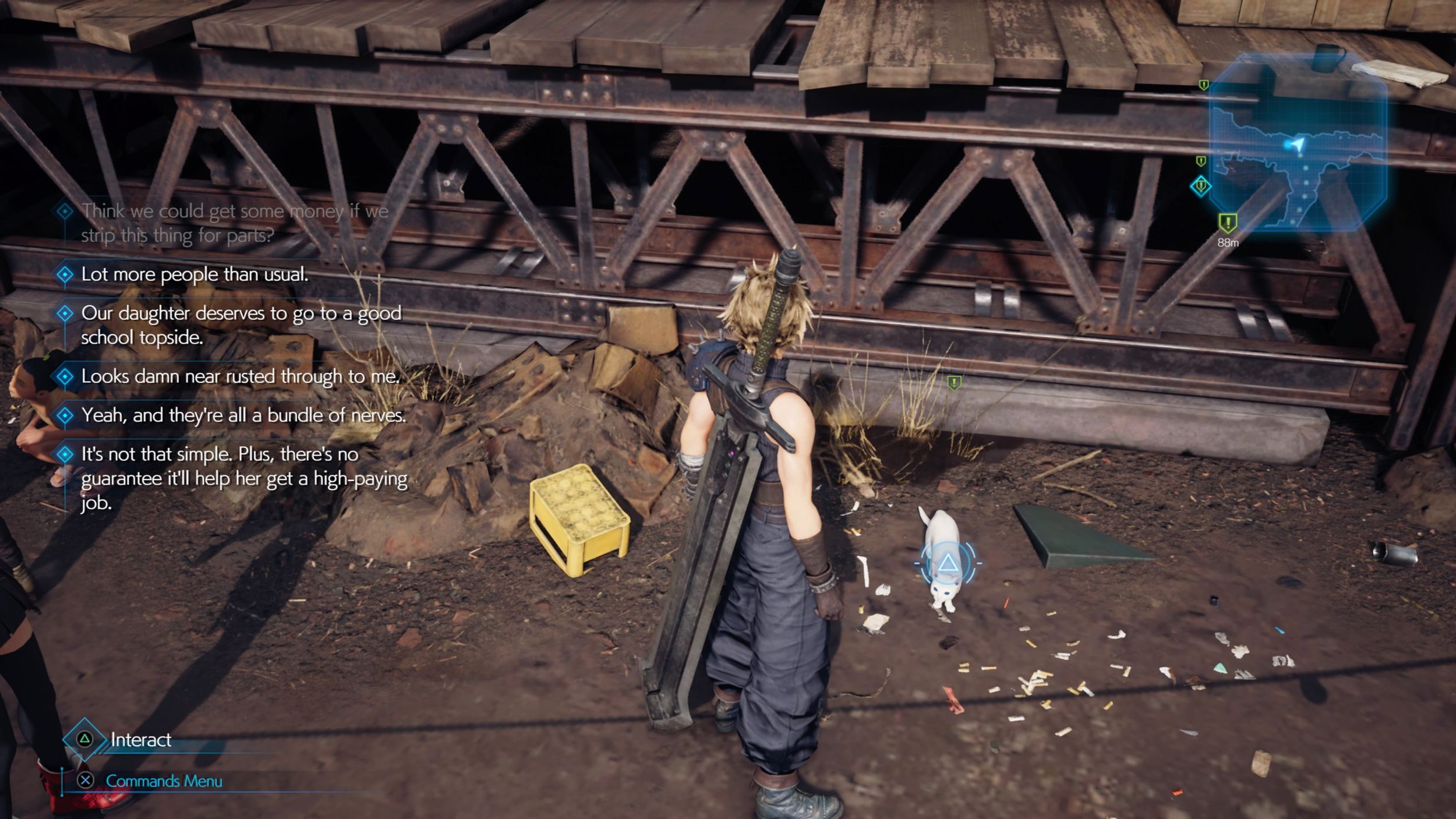Final Fantasy VII Remake has been an undeniable triumph for developer Square Enix, garnering both critical and commercial success while breathing new life into a series that has felt stagnant for some time now. And yet for all the things that the game does right, many fans are still concerned that this episodic approach to telling Final Fantasy VII’s story will negatively impact the overall narrative and its pacing once everything’s said and done.
The original Final Fantasy VII was relatively short for a JRPG, taking most players around 40 hours to complete the main tale of Cloud and friends in their struggle against Sephiroth and the evil corporation Shinra. The overarching story was a fairly well-paced affair that managed to flesh out most of its characters and locations while leaving many of the smaller details up to the player’s imagination.
But Final Fantasy VII Remake’s first episode, which only covers the first eight or so hours of the original game, is already a whopping 40-hour long experience by itself. Midgar and the events that unfold within its walls have been greatly expanded upon and reworked, and previous throwaway NPCs like Jessie, Biggs and Wedge have been transformed into memorable supporting characters that really help humanize resistance group Avalanche’s struggle to save the planet.
It’s impressive to see the lengths Square Enix has gone to breathe new life into this beloved story without ever losing the vision of what made it special to begin with. And yet, while most of these new additions and changes to the plot do an excellent job of presenting Midgar as the fully-realized dystopian megacity it was always meant to be, many fans and critics have noticed that there seems to be an overabundance of unnecessary padding strewn throughout the course of this already lengthy adventure.
A host of optional side quests, lengthy cutscenes and extended periods of Cloud walking frustratingly slow turn what was once a brisk-moving narrative into something decidedly slower-paced. Most of these choices do a commendable job of giving our main characters deeper backstories and motivations, but a handful of the optional side quests and added story beats often feel irrelevant to the overarching plot.
These relatively minor nitpicks don’t change the fact that Final Fantasy VII Remake’s first installment is an absolute blast to play for both fans of the original and newcomers alike. The battle system is blisteringly-fast and surprisingly deep, and the vast majority of changes to the plot and characters have made people fall in love with them all over again. But, again, this is just the first part of a much longer adventure. Will players still feel the same way after three or four more games featuring the same amount of padding and drawn out storytelling?
Even if Square Enix manages to annualize the sequels, we’ll still have to wait another four years or so before the story is completed. The developers are then going to have to maintain consistent storytelling and gameplay throughout each title over the course of several years while also doing whatever they can to improve upon the game’s features and staying relevant in an ever-changing industry.
This then raises the question of how gamers will be able to keep up with such an ambitious and time-consuming narrative. As each subsequent episode is released, players will have to either replay the previous ones in order to refresh their memory or just jump straight in and figure it out as they go. This will also turn off a lot of potential consumers as the cost of entry continues to grow, requiring them to purchase and play multiple 40-hour games just to catch up to the current point in the story.
All of these issues will no doubt be compounded by the industry’s impending generational leap forward, as most developers and a large chunk of the player base will inevitably move on to the PlayStation 5 when it releases later this year. If future games in the Final Fantasy VII saga are exclusive to the PS5, then those who first began playing on PS4 will have to buy the new console in order to see the story’s conclusion. This could present a significant roadblock to those unable or unwilling to purchase another expensive piece of hardware in order to see the story through to its epic conclusion.
What Square Enix needs to be able to do is deliver on the daunting task of remaking one of gaming’s most beloved stories over the course of several stand-alone chapters. These individual parts need to be able to shine on their own to justify their existence to gamers. Of course, this will not be easy, but if Final Fantasy VII Remake’s first episode is anything to go by, director Tetsuya Nomura and his team are off to an incredibly promising start.



